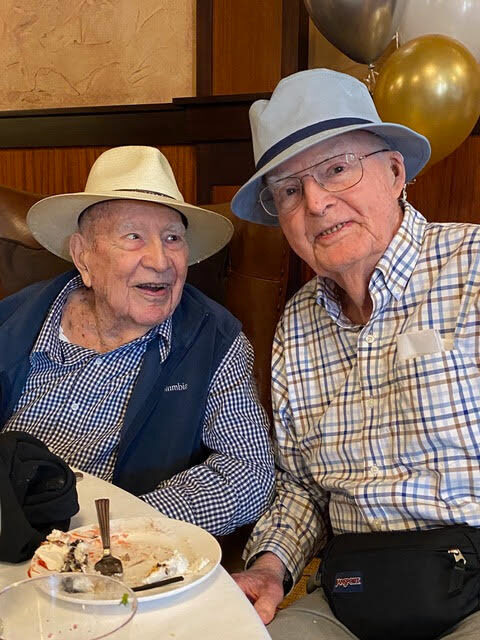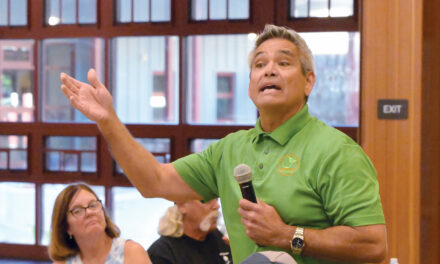This last April marked local resident Paul Lindblom’s 100th birthday. As he took time to celebrate, he also took time to reflect on his life, seeing how much the world has changed and how much he has accomplished.
Lindblom was born in Oakland and grew up in the Bay Area in a house in Berkeley. By the age of 12, Lindblom had his first job working a paper route and even got his driver’s license at 14 so that he could drive his father to the train for work.
After he graduated high school, Lindblom continued to pursue higher education attending college in Davis to explore his interest in agriculture.
Lindblom never finished college, as by then WWII had started, and he wanted to do what he could to help. As is a common story for many other families living through the war, Lindblom wanted to join the army, however, he was unable to do so on account of his poor eyesight.
Rather than join the military, Lindblom instead started his first full time job working for Kaiser, a company that built Liberty ships, a type of cargo ship, for use in World War II.
Although this job wasn’t directly involved in combat, it was still a noisy and dangerous job as Lindblom describes many accidents happening amongst the work crew during his time of employment.
After the war had ended, Lindblom was finally able to pursue his lifelong dream of farming and ranching. In the southwest hills of Los Banos, Lindblom ran a cattle ranch until the rattlesnake problem got so bad that he moved his family into the foothills to start a farm. From there, Lindblom grew peaches, plums, apricots, cotton, melons, and grains until his retirement in the mid 1980s.
Lindblom married the love of his life, Jeanne, and they had three children together, Craig, Richard, and Christine and he is now a grandfather of seven, and great grandfather of 12, which Lindblom notes as some of the proudest and happiest moments of his life.
Reflecting on life, Lindblom discussed how much the pace of life has changed as times used to be a lot slower. Without cellphones and computers, many tasks had to be completed in person, and shopping availability was limited to what was local, which greatly contrasts the world of today with so much automation and services governed by efficiency.
Speaking to future generations, Lindblom gives the advice “Get a good education and don’t be afraid to follow your dreams,” and attributes his long life to faith, his supportive family, and doing everything in moderation.



